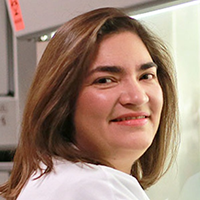- Membership & Community
-
Publications & News
- Journals
-
Newsroom
-
The Physiologist Magazine
- 2019
- 2020
- 2021
- 2022
- 2023
- 2024
- In Depth
-
Mentoring Forum
- Net Worth
- Take Care
- You … In Charge
- Work. It. Out.
- Working Off-site
- Location, Location, Location?
- Student Support
- Progressing to Postdoc
- Relationship Building
- Let’s Get It Started
- What Do We Value?
- It’s a Postdoc Life
- Coronavirus Contributions
- Creative Communications
- Selection Process
- Conference Connections
- Postdoc Appreciation
- Research Rewards
- Focus on Teaching
- Industry Insights
- Balance Beam
- Post Postdoc
- If You Build It
- Talk It Through
- Forward Bound
- I’ve Earned My PhD. Now What?
- University Life
- Tips for Trainees
- Time Travel
- Policy IQ
- Publish with Polish
- Under the Microscope
- Mentoring Q&A
- The Physiologist Magazine Readers Survey
- Evolution
- Baseline by Scott Steen, CAE, FASAE
- Find Us on Social Media
-
The Physiologist Magazine
-
Professional Development
-
Meetings & Events
-
American Physiology Summit
- #APS2024 Overview
- Abstracts
- Awards at the Summit
- Award Lectures
- Career Networking Lunch Form
- Dates and Deadlines
- Hotel Information
- Industry Partners
- Keynote Speaker—Brian Kobilka, MD
- Keynote Speaker—Jessica Meir, PhD
- Mobile App
- NIH and NSF Program Officer Panel Discussion Form
- Off-site Summit Meetups
- Physical Poster Information
- PhysioHub
- Pre-Summit Events
- Registration
- Section & Group Banquet Tickets
- Speaker Audiovisual Instructions
- Summit FAQs
- Summit Newsroom
- Summit Store
- Travel & Transportation
- Undergraduate Program Book
- Liability Waiver
- Summit Call for Proposals
- Industry Partners
- Martin Frank Diversity Travel Award Orientation Agenda
- Martin Frank Diversity Travel Award Networking Luncheon Agenda
- Women in Physiology Networking Event Agenda
-
2023
- APS 2023 Call for Proposals
- Shocklogic Test
- Team 2023 Task Force
- Shaping the Summit
- Schedule at a Glance
- Pre-Summit Events
- Pre-Summit Center for Physiology Education Workshop Registration
- Section & Groups Banquet Tickets
- Summit Store
- Pre-Summit Center for Physiology Education Workshop
- Press Registration
- Meet the Organizers
- Keynote Speaker—Terrie Williams, PhD
- Keynote Speaker—David Julius, PhD
- Industry Workshop Information
- Important Dates and Deadlines
- Hotel Information
- Game Changers
- Distinguished Lecturers
- Building APS 2023
- Awards at the Summit
- 2023 Summit Information
- American Physiology Summit Program
- 2023 Summit Newsroom
- 2024
- Scientific Integrity Policy
- Integrative Physiology of Exercise Conference
- From Concept to Classroom
- Webinars
- Related Meetings
- Future APS Conferences
-
Past APS Conferences
- APS Institute on Teaching and Learning
- Integrative Physiology of Exercise
- Seventeenth International Conference on Endothelin (ET-17)
- New Trends in Sex and Gender Medicine
- APS Institute on Teaching and Learning (2022)
- Control of Renal Function in Health and Disease Conference
- Comparative Physiology: From Organisms to Omics in an Uncertain World
- Conference Policies
-
American Physiology Summit
- Awards
-
Career & Professional Development
-
Career Gateway
-
Resources
- Transcript—Leading Through Conflict and Difficult Conversations
- Transcript—Managing Conflict with Colleagues
- Transcript—Leading a Team Through Conflict
- Transcript—Providing Difficult Feedback
- Transcript—Team Dynamics and Culture Primer
- Transcript—Building a Team
- Transcript—Leading a Team Assigned to You
- Transcript—Creating a Team Culture
-
Resources
- Career Navigator
- Center for Physiology Education
- Job Board
- Mentoring
- APS Graduate Physiology & Biomedical Science Catalog
-
Career Gateway
-
Meetings & Events
-
Advocacy & Resources
- Policy Areas
-
Resources
- Researcher Resources
- Educator Resources
- Trainee Resources
- Student Resources
-
APS Graduate Physiology & Biomedical Science Catalog
- Augusta University
- Des Moines University
- East Tennessee State University
- George Washington University
- Louisiana State University Health Sciences Center Shreveport
- Mayo Clinic Graduate School of Biomedical Sciences—Biomedical Engineering & Physiology
- Medical College of Wisconsin
- Michigan State University
- New York Medical College
- Nova Southeastern University
- Pennsylvania State University
- Saint Louis University
- Texas A&M University
- Texas A&M University Medical Physiology
- Stony Brook University
- The University of Iowa
- The University of Mississippi Medical Center
- University of Alabama at Birmingham
- University at Buffalo
- University of Colorado
- University of Delaware
- University of Florida
- University of Louisville
- University of Michigan
- University of Minnesota
- University of Missouri-Biomedical Sciences
- University of Nebraska Medical Center
- University of Oregon
- University of South Carolina School of Medicine
- University of Tennessee Health Science Center (UTHSC)
- University of Texas Health Science Center
- Virginia Commonwealth University
- Wayne State University
- Wake Forest University
- Physiology Department Catalog Submission Form
- Career Gateway
- Diversity, Equity & Inclusion
- Advocacy
- About APS
- Nonmembers
- $0.00
- Members
- $0.00
June 17, 2021
11 a.m. EDT
Genetically modified T cell immunotherapy has achieved unprecedented responses in hematologic B cell malignancies. There are six different forms of engineered T cells that have been modified with chimeric antigen receptors (CARs) and are FDA-approved for treating cancer.
In this webinar, Marcela Maus, MD, PhD, associate professor, at Harvard Medical School and director of Cellular Immunotherapy, at MGH’s Cancer Center in Boston, will discuss the components and technologies used in making a T cell product, some of the factors that are important for efficacy and the underlying mechanisms of toxicity and resistance. She will also discuss the outlooks and recent data in development of CAR T cells and other forms of engineered T cells for solid tumors.
Key learning objectives will include:
- understanding the components of a CAR and their mechanisms of action,
- describing mechanisms of resistance that have been observed in the clinic with CAR T cells, and
- describing some of the challenges in development of engineered T cells for cancer.
Presenter
 Marcela Maus, MD, PhD, is interested in using genetic engineering techniques to re-direct T cells to find and kill tumor cells while sparing healthy tissues. The Maus Lab focuses on T cell biology and T cell engineering. Chimeric antigen receptors (CARs) are synthetic molecules designed to re-direct T cells to specific antigens. Re-directing T cells with CARs is an alternative method of overcoming tolerance, and has shown great promise in the clinical setting for B cell malignancies such leukemia and lymphoma. However, successful application of this form of therapy to other cancers is likely to require refinements in the molecular and clinical technologies. The goal of the Maus lab is to design and evaluate next generation genetically modified T cells as immunotherapy in patients with cancer.
Marcela Maus, MD, PhD, is interested in using genetic engineering techniques to re-direct T cells to find and kill tumor cells while sparing healthy tissues. The Maus Lab focuses on T cell biology and T cell engineering. Chimeric antigen receptors (CARs) are synthetic molecules designed to re-direct T cells to specific antigens. Re-directing T cells with CARs is an alternative method of overcoming tolerance, and has shown great promise in the clinical setting for B cell malignancies such leukemia and lymphoma. However, successful application of this form of therapy to other cancers is likely to require refinements in the molecular and clinical technologies. The goal of the Maus lab is to design and evaluate next generation genetically modified T cells as immunotherapy in patients with cancer.


